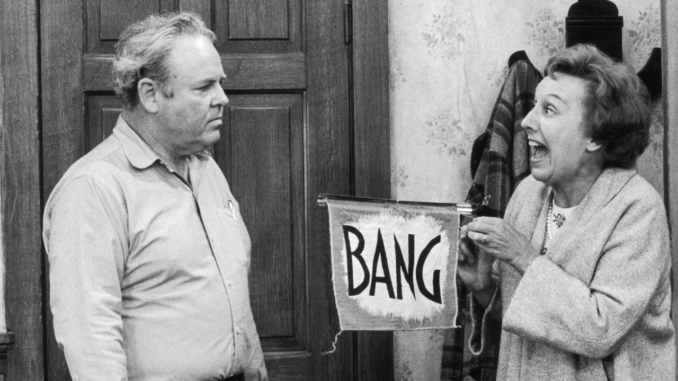
When you think of groundbreaking television, “All in the Family” undoubtedly comes to mind. This iconic sitcom, which aired from 1971 to 1979, not only entertained audiences but also tackled social issues head-on. Its success paved the way for a series of spin-offs that expanded its universe and introduced new characters and storylines. In this article, we’ll explore the legacy of “All in the Family” and its seven spin-offs, presented in chronological order.
The Birth of All in the Family
A Revolutionary Sitcom
“All in the Family” was created by Norman Lear and was based on the British series “Till Death Us Do Part.” The show centered around the Bunker family, particularly the outspoken and often bigoted patriarch, Archie Bunker, played by Carroll O’Connor. The series was groundbreaking for its time, addressing issues like racism, feminism, and the Vietnam War with humor and honesty.
Cultural Impact
The show became a cultural phenomenon, earning numerous awards and accolades. It opened the door for more socially conscious programming in the years to come, making it a pivotal moment in television history.
The Spin-offs of All in the Family
1. Maude (1972-1978)
Overview
“Maude” was the first spin-off from “All in the Family,” focusing on Edith Bunker’s cousin, Maude Findlay, played by Bea Arthur. The show tackled issues such as women’s rights, abortion, and politics, often through Maude’s strong-willed and outspoken personality.
Cultural Significance
“Maude” was notable for its feminist themes and became a platform for discussing controversial topics, making it a significant part of the 1970s television landscape.
2. The Jeffersons (1975-1985)
Overview
“The Jeffersons” followed George and Weezy Jefferson, who moved to a luxury apartment in Manhattan. This spin-off showcased the couple’s journey as they navigated their newfound wealth and the challenges that came with it.
Cultural Significance
The show was groundbreaking for its portrayal of an African American family achieving the American Dream. It addressed issues of race and class while maintaining a comedic tone, making it a beloved series in its own right.
3. Good Times (1974-1979)
Overview
“Good Times” was a spin-off of “Maude,” focusing on the Evans family living in a Chicago housing project. The show highlighted the struggles and triumphs of a working-class African American family.
Cultural Significance
“Good Times” was one of the first sitcoms to portray the realities of poverty and systemic issues faced by African Americans, making it a significant addition to the television landscape.
4. Checking In (1986)
Overview
“Checking In” was a short-lived spin-off of “The Jeffersons,” featuring the character Florence Johnston, the Jeffersons’ housekeeper. The show followed her as she managed a hotel.
Cultural Significance
Although it only lasted for a single season, “Checking In” continued the legacy of “The Jeffersons” by showcasing African American characters in diverse roles.
5. 704 Hauser (1994)
Overview
“704 Hauser” was a modern-day reimagining of “All in the Family,” set in the same house as the original series. The show featured a new family, the Hennesseys, who dealt with contemporary issues.
Cultural Significance
While it didn’t achieve the same level of success as its predecessors, “704 Hauser” attempted to capture the spirit of the original while addressing modern social issues.
6. The Jeffersons: The Next Generation (1994)
Overview
This spin-off was a continuation of “The Jeffersons,” focusing on the next generation of the Jefferson family. It aimed to explore the lives of George and Weezy’s children and their families.
Cultural Significance
Although it was short-lived, this spin-off sought to honor the legacy of the original series while introducing new characters and storylines.
